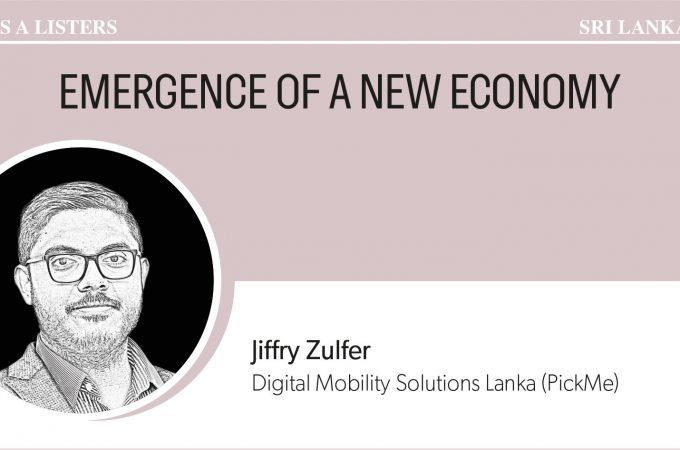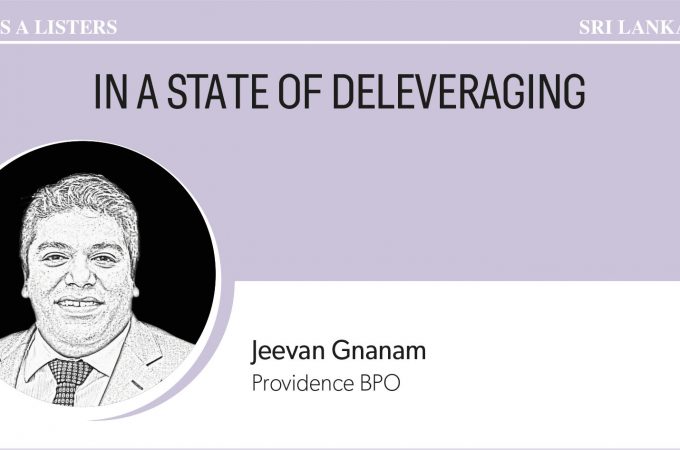WORK FROM HOME AND PRODUCTIVITY
Q: How do you view Sri Lanka’s COVID-19 response so far? What are the pros and cons?
A: If you compare both regional and global performances in containing the virus, our government – acting on the advice of public medical officials – has done demonstrably well. It was one of the first governments in the world to bring back locals stranded in an infected location; and ever since then, its course of conduct has been timely and effective.
The state protocol in tracking and monitoring suspected cases who arrived from overseas has been impressive as well. The treatment at the quarantine centres by the army and all other connected personnel is commendable.
If there’s to be a con, it is that there could have been more testing. If the state had been able to carry out both antigen and antibody testing at the point of going into quarantine, as well as at the point of leaving, we might have fared even better in controlling the pandemic.
If anything is certain at this time, it is that this rests entirely on the public’s ability to support the state response through disciplined physical distancing.
Q: In your view, how should the authorities balance the twin imperatives of safety and the economy?
A: It is paramount that authorities identify the crucial thrust sectors and industries necessary to uphold both domestic consumption and foreign exchange, and offer related enterprises the option to operate under certain regulations enforced by public health officials.
If a portion of the staff cadre is allowed to return to work, the state could permit private testing at this time, which could serve as a first screen for COVID-19. If an employee tests positive for an infection, the enterprise as well as the testing laboratory will be compelled to report it directly to the Infectious Diseases Hospital (IDH) with the state taking the necessary steps thereafter.
This will ensure that the economy continues to run regardless of a lockdown with due caution for public health.
Q: How do you see the ‘new normal’ for business panning out?
A: COVID-19 has necessitated agility and flexibility among companies worldwide. In Sri Lanka, while many enterprises thought they had the technological capacity to weather the lockdown, there was an initial lack of preparedness.
Eventually however, the lockdown has forced both customers and enterprises to learn to trust and come to terms with online and technological platforms. For example, SMEs may have to embrace non-cash transactions and everyday groceries must be bought online.
Interestingly, the work from home (WFH) regime does not appear to have reduced productivity as previously thought. Moving forward and even under normal circumstances, it might be beneficial in the long run in terms of costs if offices worked rotational shifts for a third of their staff with WFH options. Working people will spend less time and money travelling to office – and offices will have less to spend on energy and maintenance, which could lead to improved productivity.
What can be said with some certainty is that if companies do not adapt to these changes and revert to their old standard of operations, they’ll not be able to deal with the next economic crisis – whatever it may be.
ABOUT LMD’S A LISTERS
BOOST TO REAL ESTATE INVESTMENT
 Q: What are your expectations of the business environment in the next 12 months or so? A: With the reduction in interest rates and increase in money circulation, people have a greater tendency to invest in real estate over the money market amidst the pandemic. We have seen similar patterns even in developed markets such…
Q: What are your expectations of the business environment in the next 12 months or so? A: With the reduction in interest rates and increase in money circulation, people have a greater tendency to invest in real estate over the money market amidst the pandemic. We have seen similar patterns even in developed markets such…
EMERGENCE OF A NEW ECONOMY
 Q: How did the pandemic necessitate a digital economy? A: Countries were not prepared for the COVID-19 pandemic’s impact on the economy and people, but it has resulted in the emergence of a new economy and way of life. It is technology, and the spirit of humans to survive and push past boundaries that have…
Q: How did the pandemic necessitate a digital economy? A: Countries were not prepared for the COVID-19 pandemic’s impact on the economy and people, but it has resulted in the emergence of a new economy and way of life. It is technology, and the spirit of humans to survive and push past boundaries that have…
PRIORITISING CRUCIAL SECTORS
 Q: What are your expectations of the business environment in the next 12 months or so? A: I believe that business is not likely to pick up until at least mid-next year for the hospitality sector. Business was nonexistent and as a measure to prevent exorbitant losses, we converted our hotel into a quarantine centre…
Q: What are your expectations of the business environment in the next 12 months or so? A: I believe that business is not likely to pick up until at least mid-next year for the hospitality sector. Business was nonexistent and as a measure to prevent exorbitant losses, we converted our hotel into a quarantine centre…
A POSITIVE AND FLEXIBLE PATHWAY
RELIABLE PARTNERS IN A CRISIS
 Q: In brief, what are the main challenges confronting corporates at this time? A: I think corporates today are besieged with a plethora of problems caused by the prevailing situation. First and foremost is the challenge in keeping their workers safe from COVID-19, and flowing from that is the inability to keep production cycles running…
Q: In brief, what are the main challenges confronting corporates at this time? A: I think corporates today are besieged with a plethora of problems caused by the prevailing situation. First and foremost is the challenge in keeping their workers safe from COVID-19, and flowing from that is the inability to keep production cycles running…
IN A STATE OF DELEVERAGING
 Q: How do you perceive the economic climate at present? A: I would like to really think about the state that the country’s economy is in. Our debt repayments are much higher than our income and this puts Sri Lanka in a state of deleveraging. This recently manifested itself in a 14.2 percent increase in…
Q: How do you perceive the economic climate at present? A: I would like to really think about the state that the country’s economy is in. Our debt repayments are much higher than our income and this puts Sri Lanka in a state of deleveraging. This recently manifested itself in a 14.2 percent increase in…
EVER EVOLVING EXPECTATIONS
 Q: What modern-day challenges do businesses face? A: Information overload – in the new world we live in, there’s never a lack of information. About 2.5 quintillion data bytes are added every day; more data is created in a single day than the combined amount generated over 99 percent of human history. Previous generations of…
Q: What modern-day challenges do businesses face? A: Information overload – in the new world we live in, there’s never a lack of information. About 2.5 quintillion data bytes are added every day; more data is created in a single day than the combined amount generated over 99 percent of human history. Previous generations of…
EXPANDING CREDIT FACILITIES
 Q: What is the bank’s corporate strategy for 2021/22? A: DFCC Bank’s 2021/22 plan is based on our five year strategy for 2020-2025 with the aim of making it one of the most customer centric and digitally enabled banks by 2025. Our lending plans will align with the government’s budget proposals to facilitate the growth…
Q: What is the bank’s corporate strategy for 2021/22? A: DFCC Bank’s 2021/22 plan is based on our five year strategy for 2020-2025 with the aim of making it one of the most customer centric and digitally enabled banks by 2025. Our lending plans will align with the government’s budget proposals to facilitate the growth…
REMAINING IN THE SPOTLIGHT
 Q: What are Sri Lanka Tourism Development Authority’s (SLTDA) priorities for 2021/22? A: The global tourism industry will continue to experience a huge shift in the way of doing business. Our innovative bio-bubble concept launch in January was recognised at ITB Berlin. We hope this will boost traveller confidence. Therapeutic destinations and experiential travelling are…
Q: What are Sri Lanka Tourism Development Authority’s (SLTDA) priorities for 2021/22? A: The global tourism industry will continue to experience a huge shift in the way of doing business. Our innovative bio-bubble concept launch in January was recognised at ITB Berlin. We hope this will boost traveller confidence. Therapeutic destinations and experiential travelling are…





